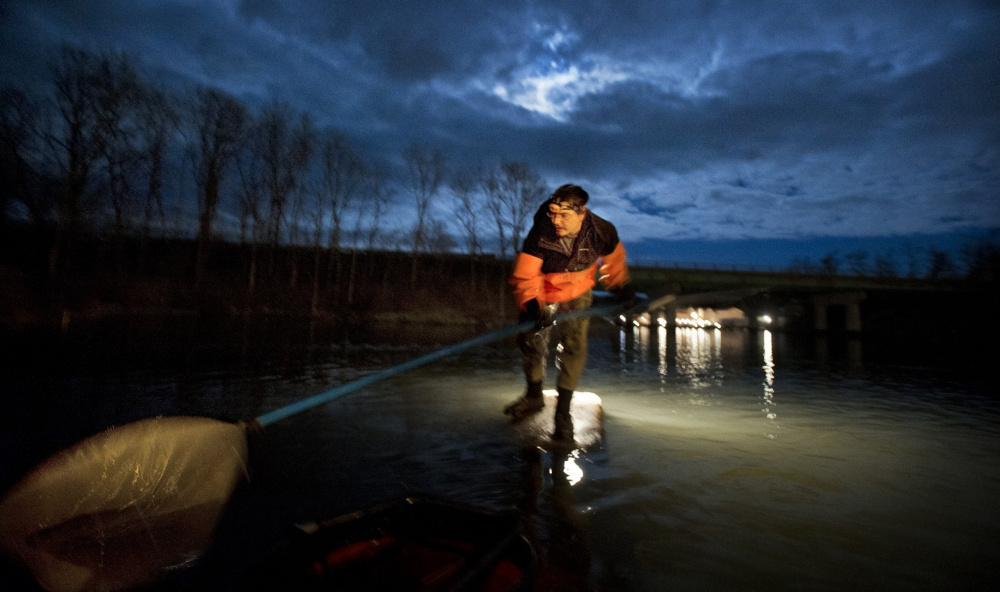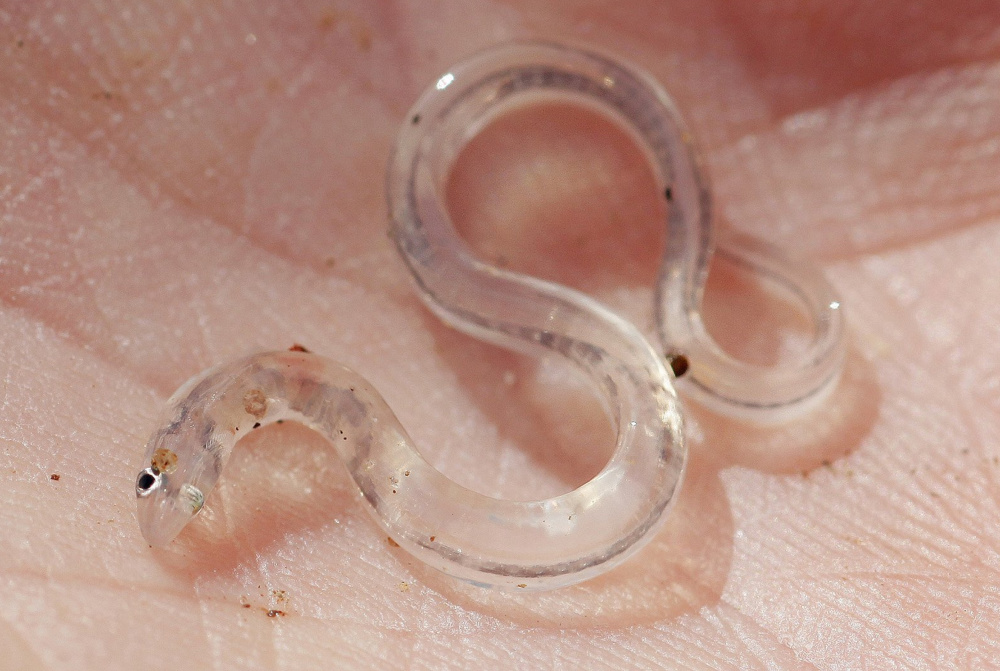Maine’s elver season ended Tuesday, with fishermen netting $13.38 million with of baby eels – the third-highest value in the history of the fishery.
More than 980 fishermen fished this season for the baby eels, landing 77 percent more than they did in the 2015 season, which was hampered by a long, frigid winter.
Last year, 5,259 pounds of elvers were harvested in a shortened season, compared with 9,330 pounds this year, according to preliminary data from the Department of Marine Resources. The quota for this year was 9,688 pounds.
The greater supply also affected the elvers’ per pound price, which dropped from $2,171 in 2015 to $1,435 this year.
New rules were enacted this season to help manage the fishery and cut down on illegal harvesting of the baby eels, which are used widely in the sushi industry.
“Law changes put in place for this season, including the elimination of the weekly 48-hour closure and the extension of the season by a week, have resulted in much better opportunity for Maine’s elver harvesters,” said Patrick Keliher, commissioner of the Department of Marine Resources, in a news release. “Our success using the swipe card and quota systems to manage this fishery gave us the confidence to eliminate those restrictions and provide Maine harvesters a better chance to land their full quota.”
The swipe card system is a mechanism used to track an individual elver fisherman’s catch. It was adopted in 2014 to control poaching.
Keliher said the swipe card and quota systems have been successful. In 2013, before the new system was implemented, there were 219 violations of illegal elver possession versus just seven this year.
“With this innovative approach to management, Maine has proven its ability to strike a balance between protecting the resource and providing opportunity for Maine fishermen,” said Keliher.
Send questions/comments to the editors.



